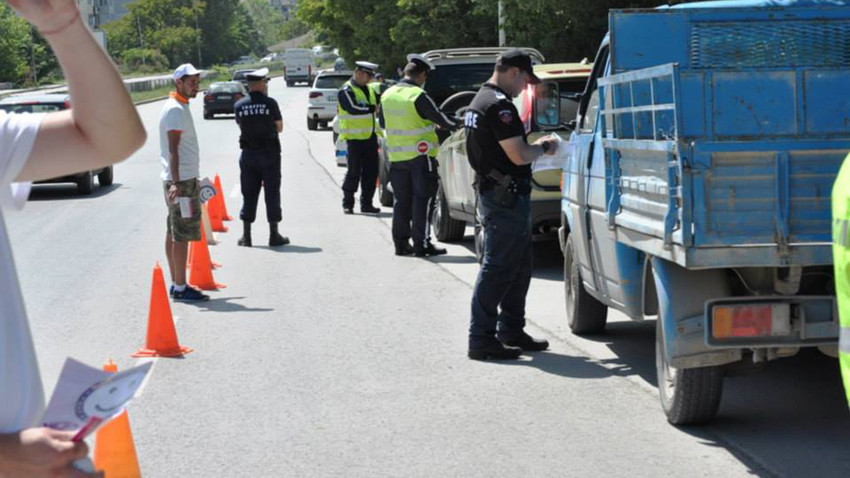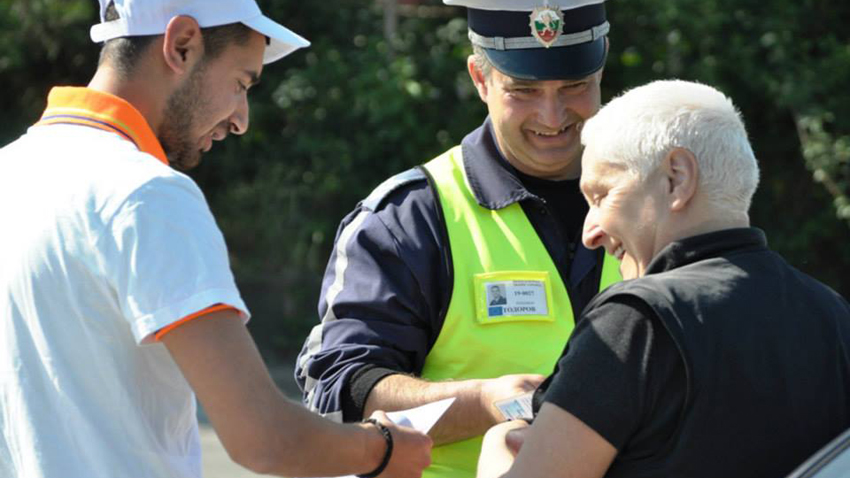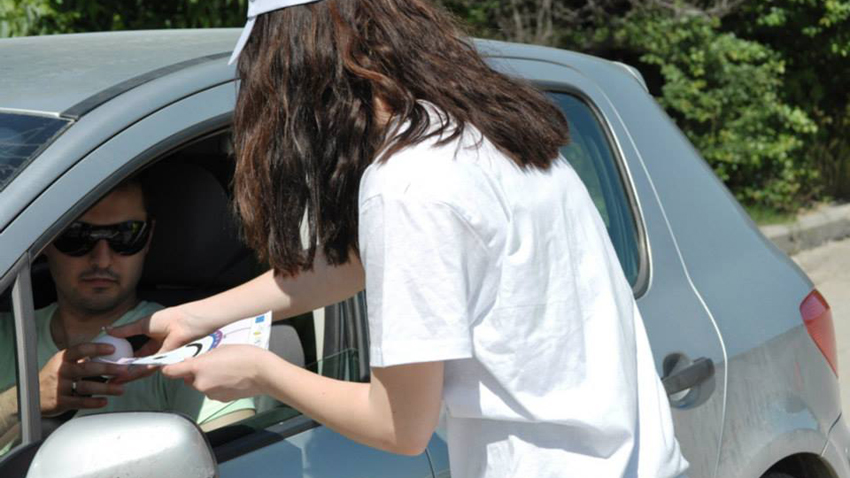Seventeen percent of polled Bulgarians admit they have driven cars after drinking some alcohol. Although the poll is not national, the data are alarming enough. The study was carried out in the period August-October 2013 by the Open Youth Institute for Research Education and Development in the framework of the Road Safety in South East European Regions Program.
 The majority of Bulgarians /84%/ say the roads in this country are not safe and are prerequisite for accidents, while 76 percent believe the government has not been doing enough to solve the problem. Over 80 percent said that over the past 12 months they mostly walked. 40 percent preferred to drive, while 37% have benefited from the services of the public transport. It turns out that the bicycle is not popular enough in Bulgaria. Just 10 percent use it for transportation. Over 60% of the polled said they always observe speed limits.
The majority of Bulgarians /84%/ say the roads in this country are not safe and are prerequisite for accidents, while 76 percent believe the government has not been doing enough to solve the problem. Over 80 percent said that over the past 12 months they mostly walked. 40 percent preferred to drive, while 37% have benefited from the services of the public transport. It turns out that the bicycle is not popular enough in Bulgaria. Just 10 percent use it for transportation. Over 60% of the polled said they always observe speed limits.
According to the European Commission, the number of road deaths per million inhabitants in Bulgaria last year was 82, while the average level in the EU was 52. Police commissary Anton Antonov, head of "Road Police" at the Ministry of Interior, said that there was a rise in the number of victims on the road during the past year. As part of the project at the end of May, volunteers of "Open Youth" organized a campaign called "Drive responsibly 2014." Together with the police they participated in 28 special operations in 28 regions of the country. Over 3800 cars were checked and 11 percent of cases involved irregularities. The most common offences were related to documents, turned off lights and not wearing a seat belt. Where is Bulgaria in comparison to other Southeast European countries in terms of road safety?
 "In Southeast Europe, the trends are common and when improvement is observed, it is seen in the whole region,” Daniel Vankov of "Open Youth" says. “This year the situation in Bulgaria has deteriorated and there are more accidents and victims. It is the same in Poland and Slovakia. The colleagues from Slovakia reported about an accident with a students’ bus last week. Slovakia is the only country in Southeast Europe, which is above the average European level and for the past three years has marked the most significant improvement in terms of reducing fatalities. Discussing the causes of the problems on the road, we came to the conclusion that in addition to driving culture and information campaigns, the economic situation also had effect. When people do not have enough money they avoid driving their cars, which means that the risk of road accidents decreases. When people travel more the risk increases.”
"In Southeast Europe, the trends are common and when improvement is observed, it is seen in the whole region,” Daniel Vankov of "Open Youth" says. “This year the situation in Bulgaria has deteriorated and there are more accidents and victims. It is the same in Poland and Slovakia. The colleagues from Slovakia reported about an accident with a students’ bus last week. Slovakia is the only country in Southeast Europe, which is above the average European level and for the past three years has marked the most significant improvement in terms of reducing fatalities. Discussing the causes of the problems on the road, we came to the conclusion that in addition to driving culture and information campaigns, the economic situation also had effect. When people do not have enough money they avoid driving their cars, which means that the risk of road accidents decreases. When people travel more the risk increases.”
 Most recently, Bulgaria was also shaken by a tragic incident in which a 4-year-old boy was killed by a jeep in a pedestrian zone in the city of Stara Zagora. This sparked a wave of protests in various Bulgarian towns. The tragedy made Bulgarians ask themselves what sanctions must be introduced in order for such accidents to stop happening.
Most recently, Bulgaria was also shaken by a tragic incident in which a 4-year-old boy was killed by a jeep in a pedestrian zone in the city of Stara Zagora. This sparked a wave of protests in various Bulgarian towns. The tragedy made Bulgarians ask themselves what sanctions must be introduced in order for such accidents to stop happening.
"My personal opinion is that most drivers have good driving etiquette. But the problem is with that 5-10% who do not have any driving culture. We see them everywhere, because they are people with good financial resources and less fear of the law,” Daniel Vankov says. “Society should not be scandalized only in such cases but there should have been a reaction when the court said the electronic tickets of the police and the cameras were not legal. In the area of prevention, we have been trying to solve the problem with a positive approach, but it is not enough. There should be very strict control but everyone wishes to get away with infringement when they are stopped by police. Where is the logic?”
English: Alexander Markov
Photos: Open Youth InstituteA team of 12 Bulgarian 11th grade students, led by Elitsa Pavlova, won first place among participants from around the world in the prestigious Live in a Healthy Space Design Competition organized by the National Space Society (NSS)..
On the occasion of the upcoming National Holiday - March 3 and 147 years since the Liberation of Bulgaria from Ottoman rule, the Regional Library in the city of Yambol is conducting the campaign "Let's Read for Bulgaria". The goal is..
The Aviation Training Center at Sofia Airport has received accreditation from the Airports Council International (ACI) and joins the elite group of 21 training hubs, including those at leading European airports such as Munich,..
Easter 2020 went down in history with two things. The first was the state of emergency, introduced due to the Covid-19 pandemic that..

+359 2 9336 661
